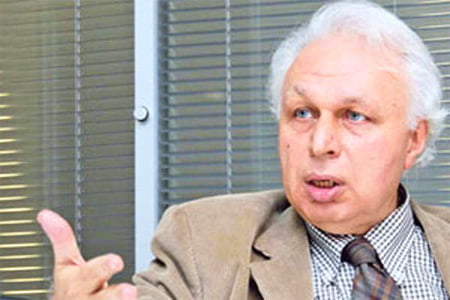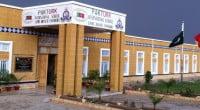Turkish schools abroad: a global phenomenon

Date posted: December 22, 2012
Dr. Seyfettin Gürsel
Two weeks ago, I was in northern Iraq, the region controlled by the Kurdistan Regional Government (KRG), with my colleagues from Zaman. We had a very informative exchange of views with KRG personalities about the collaboration between Ankara and Arbil on the exploration of natural resources (see my article “Kurdish oil: a strategic shift,” Dec. 14, 2012).
During our stay we had also the opportunity to visit Fethullah Gülen-inspired Turkish schools to meet some of the managers as well as teachers.
This was my third visit to these schools. Years ago I visited those of South Africa, and Bosnia and Herzegovina. A very similar story is found in each case. A handful of volunteers arrive in difficult times and succeed in tearing out required authorizations in an atmosphere of suspicion. They move on to build their first school with the support of donations coming from the faithful of some Anatolian city. After the first school proves its high performance in educating students and once the local authorities are reassured that there is no obscure political or ideological aim behind the institution, the way is opened wide for enlarging the school’s presence.
In Iraq the saga began in 1994 with 74 students in Arbil at a time when an armed confrontation between Kurds and then-Iraqi President Saddam Hussein raged on, isolating the country’s north. The second school opened in Sulaimaniya, but beyond that the number remained limited to four till 2004. After the fall of Saddam, an explosion occurred. According to Talip Büyük, general director of the Fezalar Education Company, there are now 30 Turkish schools in Iraq, 18 of which were established in northern Iraq and 12 in the territories controlled by Baghdad. As many as 12,000 students are enrolled in these schools. Naturally, the question comes to mind: How many of these schools are there worldwide? I asked the question to Celal Uşak, a board member of the Journalists and Writers Foundation (GYV). Uşak estimates that there are about 1,000 in approximately 150 countries, employing 10,000 teachers from Turkey. No doubt that we are facing an astonishing global phenomenon whose long-term implications are difficult to predict from where we stand.
This phenomenon has been puzzling me for a long time. How do these schools work? What are the keys items behind their success? What are the mission and limits of this global phenomenon? I cannot claim to be able to fully answer these questions, only to give some personal perspectives. The educational system is quite similar to foreign schools established in Turkey during Ottoman times. Mathematics and scientific courses are in English, taught by Turkish teachers, while social courses are in the countries’ native languages, handled by local teachers. English and Turkish language education is very important. For example, in Iraqi schools there are 16 hours of English and 12 hours of Turkish per week. We met by coincidence in an Arbil mall a Kurdish student, Berhevan, who actually teaches English in the Mosul school. We were impressed by Berhevan’s fluent Turkish.
The performance of the graduates in university entry exams is undisputable. Last year Selahaddin Eyyubi, one such school in Sulaimaniya, had seven of their students in the top 10 KRG baccalaureate students. I asked Ali Çavdar, a math teacher and the vice president of the committee responsible for educational matters, to account for this success. The key word is “a dynamic educational process” for staff, Çavdar said, some kind of learning-by-doing program for the educators themselves. Workshops are regularly organized for the teachers, aiming to improve their skills. Mr. Çavdar told me that a laboratory workshop was going on right now in which university professors of physics, chemistry and biology from Turkey were showing experiments to the young Turkish teachers. He told me also that the experienced teachers regularly show the beginners teaching methods.
The entry into schools requires high performance on entry exams for students even though there are school fees. Last year, in the Arbil school, 5,000 students applied for 400 places. I have to note that the fees are quite affordable for the middle class. Turkish teachers receive salaries similar to the salaries of local teachers, which makes the Turkish schools very attractive vis-à-vis their competitors when comparisons are made on price to quality. Once the startup cost is financed from Turkey, the schools are able to produce sufficient income to finance new ones.
Obviously, the fundamental factor behind the success of Turkish schools is the spirit of the mission of the people who belong to the faith-based social movement which supports the schools. What is this mission? I am not able to answer this question, but nothing I have seen indicates it is Islamization.
Source: Today’s Zaman December 21, 2012
Tags: Asia | Education | Hizmet-inspired schools | Iraq |
























